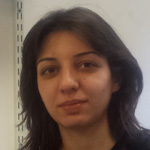Jan 31st, 2014, 3:00 pm in Huxley 345
Machine Learning Applications: Empowering Medical Science Through Computing
Increasing computational power over the past decade has enabled the rapid development of a variety of new machine learning methods that primarily aim to analyse medical data, in order to offer extended insights about the inner workings of humans. Evidently, understanding the human body better can potentially aid the earlier diagnosis and treatment of certain diseases that have been troubling humans for many years now.
An inherent problem of medical data is their increased complexity and high dimensionality, which is essentially caused by the complicated design of the human body but is also a result of noise coming from the acquisition hardware. In this talk, we will demonstrate some recent machine learning methodologies for removing noise and extracting inference from medical data using linear and non-linear dimensionality reduction techniques along with a set of unsupervised and supervised classification algorithms. Moreover, we show how these techniques can be best applied in order to aid the diagnosis of different types of cancer and also help in understanding how the human brain works when we are performing various actions in our everyday life.


